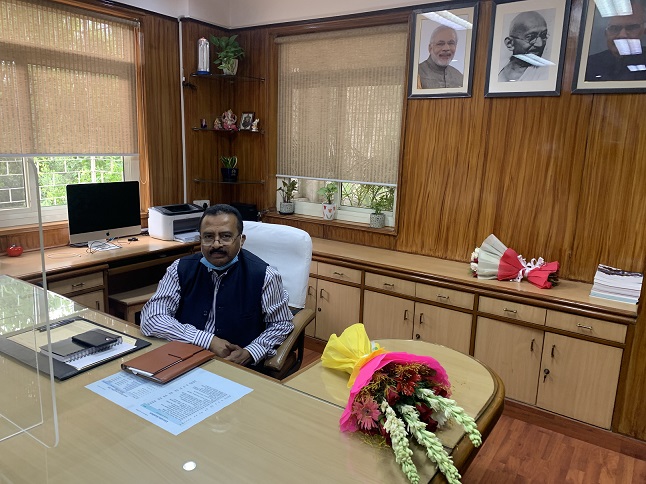Retirement planning strategies for early retirees

Retirement planning strategies for early retirees
Retirement. Ah, the sweet freedom and relaxation that it promises. For many, retirement is a distant dream, something to look forward to after decades of hard work.
But what if you could retire early? Imagine having the time and financial flexibility to pursue your passions, travel the world, or simply enjoy life on your own terms.
It may seem like a far-fetched idea, but with careful planning and smart strategies, early retirement can become a reality.
In this article, we will explore some key retirement planning strategies specifically tailored for those who aspire to retire early.
Whether you're in your 30s or 40s and want to escape the daily grind sooner rather than later, these tips will help you pave the way towards financial independence and a fulfilling retirement lifestyle. So let's dive in and discover how you can make your dreams of early retirement come true!
Save, save, save
Save, save, save. It's the mantra of every successful retiree, especially those looking to retire early. Building a substantial nest egg requires discipline and commitment to consistently set aside a portion of your income for the future.
One effective strategy is to automate your savings. Set up automatic transfers from your paycheck or checking account into a separate retirement savings account. This way, you won't even have to think about it – the money will be saved before you have a chance to spend it.
Another tip is to cut unnecessary expenses and prioritize your spending. Take a close look at your budget and identify areas where you can trim down without sacrificing too much happiness.
Maybe that means cooking more meals at home instead of dining out as often or canceling subscriptions that you rarely use.
It's also important to keep in mind that saving doesn't mean depriving yourself completely. Find ways to enjoy life while still being mindful of your long-term goals. Look for free or low-cost activities and entertainment options, explore second-hand shopping for great deals, or try DIY projects instead of hiring professionals.
Remember that consistency is key when it comes to saving for early retirement. Stay focused on your financial goals and resist the temptation to splurge unnecessarily.
By adopting smart saving habits now, you'll be setting yourself up for financial security in the years ahead.
Invest in yourself
Investing in yourself is a crucial aspect of retirement planning, especially for early retirees. After all, your retirement years should be filled with personal growth, new experiences, and pursuing your passions. Here are some strategies to help you invest in yourself during this phase of life.
Consider continuing education or learning new skills. This could involve taking courses at a local college or online, attending workshops or seminars related to your interests or hobbies.
Not only will this keep your mind sharp and engaged but it can also open up new opportunities for personal fulfillment.
Prioritize self-care and well-being. This includes maintaining a healthy lifestyle through regular exercise, eating nutritious meals, getting enough sleep and managing stress effectively.
It's important to take care of both your physical and mental health so that you can fully enjoy the freedom that retirement brings.
Indulge in activities that bring you joy and fulfillment. Whether it's traveling to new destinations, volunteering for causes close to your heart or exploring creative outlets such as painting or writing - find what makes you feel alive and make time for it regularly.
Lastly but not least importantly: never stop setting goals for yourself! Retirement doesn't mean that you have accomplished everything there is to do – quite the opposite!
Set meaningful goals that align with your values and aspirations; they will provide structure and purpose during this next chapter of life.
By investing in yourself throughout retirement planning journey enables you to live a fulfilling life full of growths even after leaving the workforce behind!
Consider your health care costs
One important aspect that early retirees often overlook when planning for their retirement is the cost of healthcare.
As we age, our medical needs tend to increase, and it's crucial to have a solid plan in place to cover these expenses.
First and foremost, it's essential to understand how Medicare works and what it covers. While Medicare does provide some coverage for medical expenses, it may not cover everything you need during retirement.
It's wise to explore supplemental insurance options or consider a comprehensive healthcare plan that suits your individual needs.
Another factor to consider is the rising cost of prescription medications. Prices can vary significantly depending on the specific drugs you require.
It's worth researching different pharmacies and exploring discount programs that could help reduce these costs.
Additionally, maintaining a healthy lifestyle can go a long way in reducing healthcare expenses as you get older.
Regular exercise, a balanced diet, and preventive care such as vaccinations and screenings can help prevent or manage chronic conditions effectively.
Don't forget about long-term care insurance. While no one likes to think about needing assistance with daily activities later in life, the reality is that many individuals will require some form of long-term care at some point.
Having appropriate insurance coverage can help ease the financial burden associated with this type of care.
By considering your health care costs now rather than later, you'll be better prepared for any unexpected medical expenses that may arise during your early retirement years.
Plan for leisure activities
When it comes to early retirement, planning for leisure activities is just as important as saving money and managing health care costs.
After all, what's the point of retiring if you don't have a plan for how you'll spend your newfound free time? Here are some strategies to consider when planning for leisure activities in your early retirement.
Make a list of all the things you've always wanted to do but never had the time or opportunity. Maybe it's traveling to exotic destinations, learning a new hobby or pursuing a passion project.
Whatever it may be, having a clear idea of what brings you joy will help guide your leisure activities during retirement.
Budgeting for these activities is crucial. While you may have saved diligently throughout your working years, it's important to allocate funds specifically for leisure pursuits.
This way, you can enjoy yourself without worrying about overspending and depleting your retirement savings.
Another strategy is to explore low-cost or even free options for entertainment and recreation. Many communities offer senior discounts on various activities such as museums, theaters or fitness classes. Take advantage of these opportunities and stretch your retirement dollars further.
Additionally, consider joining clubs or organizations that align with your interests. Whether it's a book club, hiking group or volunteering at a local charity - being part of a community allows you to socialize while engaging in activities that bring fulfillment.
Finally yet importantly , don't forget about self-care during this phase of life! Taking care of yourself physically and mentally should remain an essential part of your routine even after retiring.
This could include regular exercise like yoga or swimming , practicing mindfulness through meditation ,or simply indulging in hobbies that bring relaxation such as painting , gardening etc .
Planning for leisure activities in early retirement is not only about having fun but also maintaining overall well-being.
By considering what truly brings joy into our lives,prioritizing budget allocation,and seeking out community involvement, we can make the most of our leisure time and create a fulfilling retirement experience.
Consider part-time work
One of the retirement planning strategies that early retirees should consider is taking on part-time work. While retirement may be seen as a time to relax and take it easy, working part-time can have numerous benefits.
Part-time work allows you to continue earning an income, which can supplement your savings and provide financial security.
This is especially important for those who retire early and may not have accumulated enough wealth to sustain their lifestyle for decades without additional income.
Working part-time can help keep your mind sharp and engaged. It provides an opportunity to learn new skills or explore different industries or career paths that you may not have had the chance to pursue during your regular employment years.
Additionally, staying in the workforce even on a part-time basis offers social interaction and a sense of purpose.
It allows you to stay connected with colleagues, make new acquaintances, and contribute to society in some capacity.
Part-time work also provides flexibility in terms of hours and commitments. You can choose how many days or hours you want to dedicate each week based on your preferences and other personal obligations or interests.
Furthermore, having a source of income from part-time work can alleviate concerns about depleting your savings too quickly during retirement.
It helps create a buffer while still allowing you the freedom to enjoy leisure activities or travel as desired.
Considering part-time work as one of your retirement planning strategies has numerous advantages beyond just financial stability.
It keeps you mentally stimulated, socially engaged, and offers flexibility while ensuring longevity for your hard-earned savings.
Conclusion
Retirement planning is a crucial step for anyone, but it becomes even more important for early retirees.
By implementing the right strategies, you can ensure that your retirement years are fulfilling and financially secure.
Start by saving as much as possible during your working years. This will provide you with a solid financial foundation to support your lifestyle in retirement. Invest wisely and diversify your portfolio to maximize returns while minimizing risk.
Investing in yourself is equally important. Use this time to pursue hobbies, interests, or even start a new career. Continuously learning and growing not only enriches your life but also keeps you mentally sharp.
Healthcare costs can be a significant expense in retirement, so make sure to plan ahead and explore different healthcare options available to you.
Consider long-term care insurance or Medicare Supplement plans that can help cover any unexpected medical expenses.
Don't forget about leisure activities! Retirement should be enjoyable, so plan how you want to spend your free time.
Whether it's traveling the world, taking up new hobbies, or spending quality time with loved ones – having a clear vision of what brings you joy will make all the difference.
While some early retirees may choose not to work at all during their retirement years, others may find fulfillment in part-time employment opportunities. Working part-time can provide additional income while keeping you active and engaged socially.
In conclusion...
Early retirement offers incredible opportunities for personal growth and enjoyment if properly planned for.
By adopting these strategies – saving diligently, investing wisely, prioritizing self-care and healthcare costs, planning for leisure activities, and considering part-time work – you'll set yourself up for success in this exciting phase of life.
Remember that everyone's path is unique; tailor these suggestions based on your individual circumstances and goals.











.jpg)


































